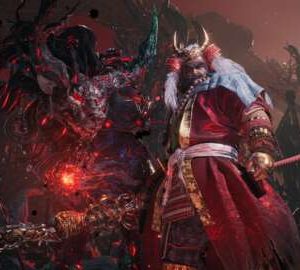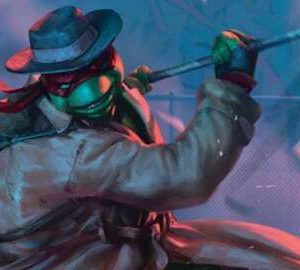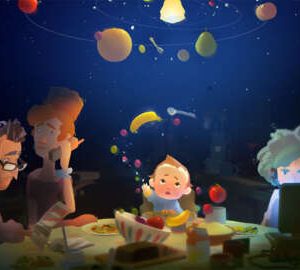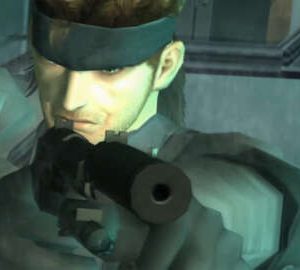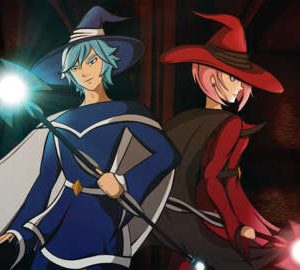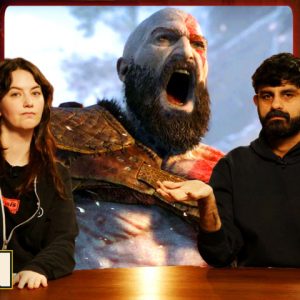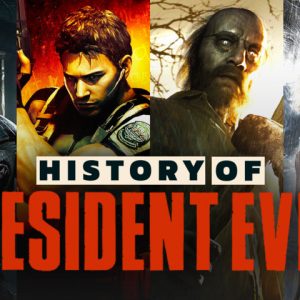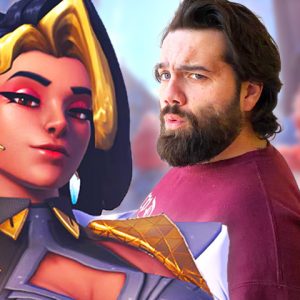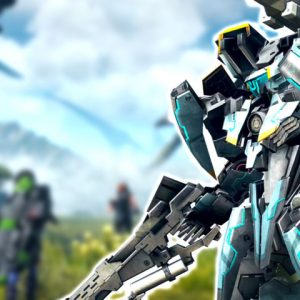This story is part of our new Future of Gaming series, a three-site look at gaming’s most pioneering technologies, players, and makers.
For decades, the gaming industry has been following a trend Nintendo started all the way back with the launch of the Game Boy in 1989. Versatile handheld consoles are the future, even if their history goes back more than 30 years. Valve, Ayaneo, Asus, and even PlayStation have handheld gaming options now. But, none of them have Mario, Link, or Samus.
How does Nintendo follow up the Switch, one of the greatest and most unique video game consoles of all time? Considering the state of the industry and Nintendo’s penchant for unorthodox innovation, here’s what we want to see from the next console—whether it’s actually called the Switch 2, or something else entirely.
A strong first impression
First off: the next Nintendo console absolutely has to be another hybrid model that can be played in either handheld or docked mode. The rest of its design is secondary, though no less crucial.
A major part of the Nintendo Switch’s brilliance is its charming no-frills design: a rectangle with delicately rounded corners, familiar button layouts, and a refreshing pop of neon blue and neon red on the left and right Joy-Cons. If “Switch” is anywhere in the branding, then the next console should utilize those same neon colors.
For handheld gaming, bigger is not always better. More power and a nicer screen usually mean more weight and a shorter battery life. Longer handheld sessions with the Switch OLED’s 0.93 pounds can get tiring, and your average Steam Deck is almost twice that at 1.5 pounds. Video Games Chronicle reported in October that Nintendo is considering a cheaper LCD screen as opposed to an OLED, but the best path forward would be to offer both options at different price points like its competitors.
The eye-opening Xbox Series X|S split could do wonders for the next Nintendo console. Imagine one heavy-duty, powerful Switch that can go mobile but still handle the biggest new AAA games when docked. Then there’s another lightweight, cheap, highly-mobile alternative that’s digital-only. A standard, lite, and pro option could all launch at the same time, and each would meet with robust demand.
You could spend anywhere between $350 and $650 on a Steam Deck right now. What if Nintendo had $199, $350, $500 options?
Tidings of Joy-Con
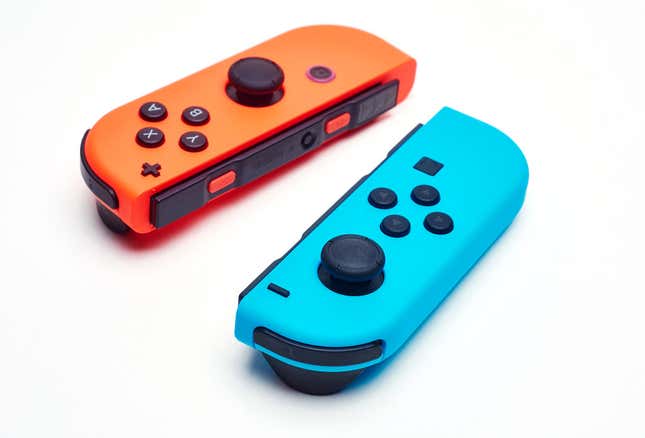
The Nintendo Switch Joy-Cons are easy to love—and hate. They’re stylish and satisfying to click onto the sides of the console, but they’re notorious for drift issues, in some cases after only a few months of use. Nintendo’s new-gen input devices need to be more robust to limit these issues, or at least smooth out the process for replacements and repairs.
It would be nice to see existing hardware remain compatible with the Nintendo Switch 2. Every gadget these days uses USB-C, so as long as the Switch 2 isn’t too swole to fit in the Switch dock, it seems possible.
What if instead of Joy-Cons, Nintendo approached its next-gen controllers similar to Microsoft’s Xbox Design Lab? Anyone can design a custom controller with a grip, rear paddles, and bespoke thumbsticks. A Switch successor doesn’t need to do anything nearly as hardcore, but can give gamers the option for something more ergonomic and custom buttons to maximize comfort.
The internals
The standard Nintendo Switch comes with a meager 32 GB of internal memory, and the OLED has 64 GB. But The Legend of Zelda: Tears of the Kingdom takes up roughly 16.3 GB. You can’t let a flagship game take up more than half of the console’s total memory! The Entertainment Retail Association (ERA) estimates that 89.5% of all video games sold in 2022 were digital downloads, so storage is already in high demand across every platform. A new Switch needs more hard drive space, especially as new-gen Nintendo games get larger.
If Nintendo opts for an internal solid-state drive, then it would reduce load times (which can be a major issue with some Switch games) and make it easier to deliver more onboard storage. Most devices offer different price points based largely on internal storage. Broadly speaking, the Nintendo Switch 2 needs to feel “next generation” compared to its predecessor in terms of picture quality, graphical processing, and overall power.
All versions of the current Switch have a 720-pixel display when handheld and 1080p when docked. Framerate typically remains at 30 FPS and caps at 60 FPS, but few games take advantage of that higher end, and some older Switch games get jittery when there’s too much happening on the screen. Graphics typically look good yet not great, but Nintendo’s cartoonish design style makes it all work.
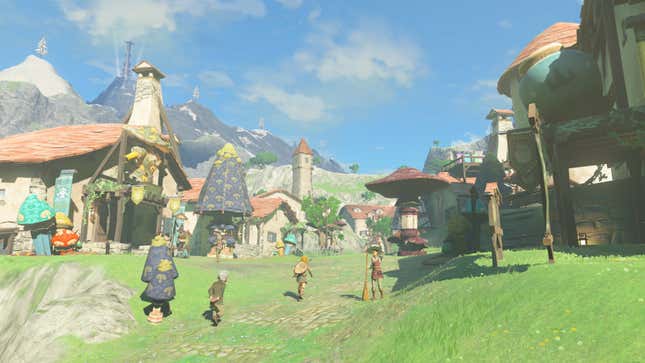
Plenty of gamers have gripes about Zelda: Tears of the Kingdom’s graphics. Nintendo gets an A for ingenious game and art design, but despite TotK’s status as a Game of the Year contender, let’s be honest: It barely looks better than Breath of the Wild, which came out six years ago.
The next-gen Switch should run at 1080p in handheld and upscale to 4K when docked. The reports of Gamescom 2023 Switch 2 demos indicate that the next console will use NVIDIA’s Deep Learning Super Sampling (DLSS). This neural graphics technology uses artificial intelligence to drastically boost framerate and resolution without taxing the processor as much. What could be more useful for a portable gaming platform?
Those widely reported Gamescom previews of Nintendo’s new hardware back in September also reportedly included the Unreal Engine 5 tech demo called The Matrix Awakens. If the Switch 2 can run games designed in Unreal Engine 5, that’s a strong indication that it’ll be a huge leap forward in terms of graphical fidelity.
While it likely won’t be able to compete directly with Xbox Series X and PlayStation 5, Nintendo has proven time and time again that its hardware doesn’t need to jostle for graphical supremacy to sell well. It just needs to justify the upgrade from the previous console.
Bells and whistles, please
I still have stress dreams about watching Netflix on the Wii in college. The Nintendo Switch hasn’t really helped to alleviate those unresolved feelings. It has Hulu, YouTube, and all the vital anime streaming services, but little else. Most televisions these days have all the basic apps, so why can’t Nintendo’s hot new video game system do the same?
An interesting patent for a new dual-screen handheld console akin to the Nintendo 3DS exists, and it could shed light on Nintendo’s plans. If that’s where Nintendo is going for its next console, it’s a prime opportunity to bring two-screen classics to something like Nintendo Switch Online and call it the Nintendo FlipSwitch (you heard it here first). If it had more apps, it could become the perfect go-to portable streaming screen for everything.
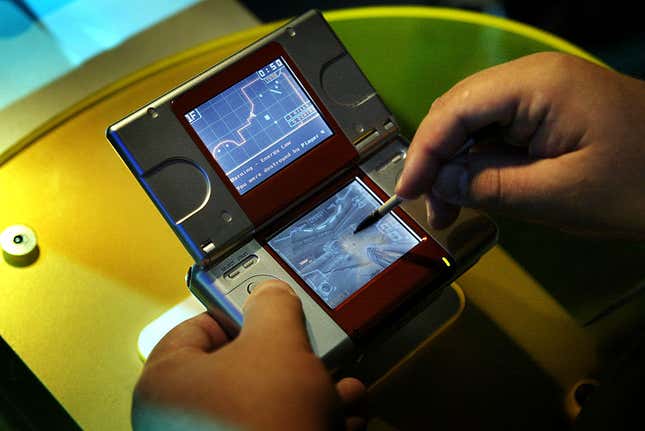
The Switch 2 also needs to upgrade friend lists and voice chat. Yes, Nintendo products skew towards children, but many of those children have grown up, too. Becoming “Friends” with your former college roommate so you can visit his cute tropical island shouldn’t be harder than applying for a credit card. At least consider looser security options for adult gamers. Let us have party chat without having to juggle a second device with a separate app.
Plenty of fighting games have satisfying and fair online play. So why can’t Smash? Say Nintendo remasters Super Smash Bros. Ultimate for this next-gen system. If it also fixed the networking issues, then it would truly become a timeless classic.
The games
The biggest blunder that Nintendo could make with the Switch 2 would be lackluster backward compatibility, especially because gamers continue to to pay top dollar for first-party exclusives on the Switch. Imagine paying $69.99 for Tears of the Kingdom in May 2024, and then you can’t even play it on the new console a year or two later. Not so nice.
In a February 2022 Q&A session, Nintendo hinted at plans to leverage the Switch’s playerbase of 132 million with its next console, implying that backward compatibility was a priority. If there’s some kind of upgraded Switch 2 cartridge, then it would be nice to see Nintendo do something akin to the Nintendo DS, which had a small slot for DS games and a larger one for last-gen Game Boy Advance games.
What of the games themselves? For starters, I’d love to see the Switch 2 adequately run major cross-platform AAA games and the most popular free-to-play titles. Multiplatform franchises like Madden and Call of Duty reliably stay in the top 10 best-selling list every year, but the Switch is far too weak to run them well. If Nintendo made the Switch 2 the best place to play these and major free-to-play titles like Fortnite, then it could become the most essential piece of gaming hardware this century.
The Switch owes a lot of its early success to having Breath of the Wild as a launch title, and the best-case scenario for Nintendo is a game with similar wow factor. Nintendo insider Zippo claimed back in August that a “new major Mario title” was in the works for the next system using Unreal Engine 4. That would definitely fit the bill.
When Nintendo allegedly let developers test the next-gen Switch at Gamescom, the new hardware was reportedly shown with an upgraded Breath of the Wild demo. These demos raise an interesting prospect: What if Nintendo remastered the Switch’s greatest hits?
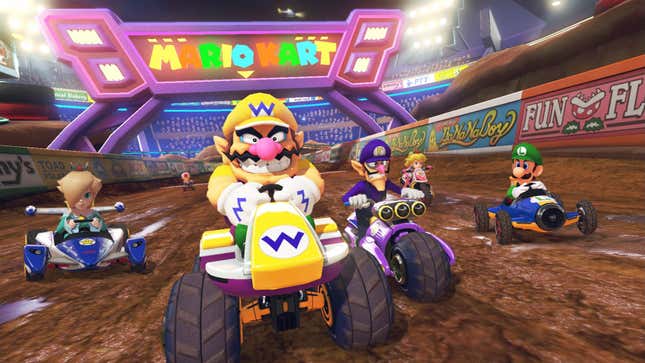
Nine years after its initial launch, Mario Kart 8 was the 11th best-selling video game across all platforms in 2022. Even Super Smash Bros. Ultimate made it into the top 20, despite the fact that it turns five years old just a few weeks from now. Both titles remain at a price point of $59.99 and in high demand. These multiplayer games are so exhaustive with dozens of characters and maps that it’s hard to imagine Nintendo making true sequels anytime soon.
A suite of high-fidelity remasters would be more than enough to convince many gamers to invest in a revamped version of Nintendo Switch Online that more closely resembles Xbox Game Pass, with souped-up versions of Mario Kart 8 and Super Mario Galaxy as part of a package deal. Heck, even if you had to own the Switch versions of these games in order to unlock the next-gen upgrade, it would be a major selling point.
So when will the mighty Nintendo Switch 2 finally grace our hands?
In all likelihood, Nintendo doesn’t want to announce anything before the 2023 holiday season. Otherwise it could cut into sales of the first Switch. If we had to make an educated guess, that means an early 2024 announcement for a release date in the back half of the year.





